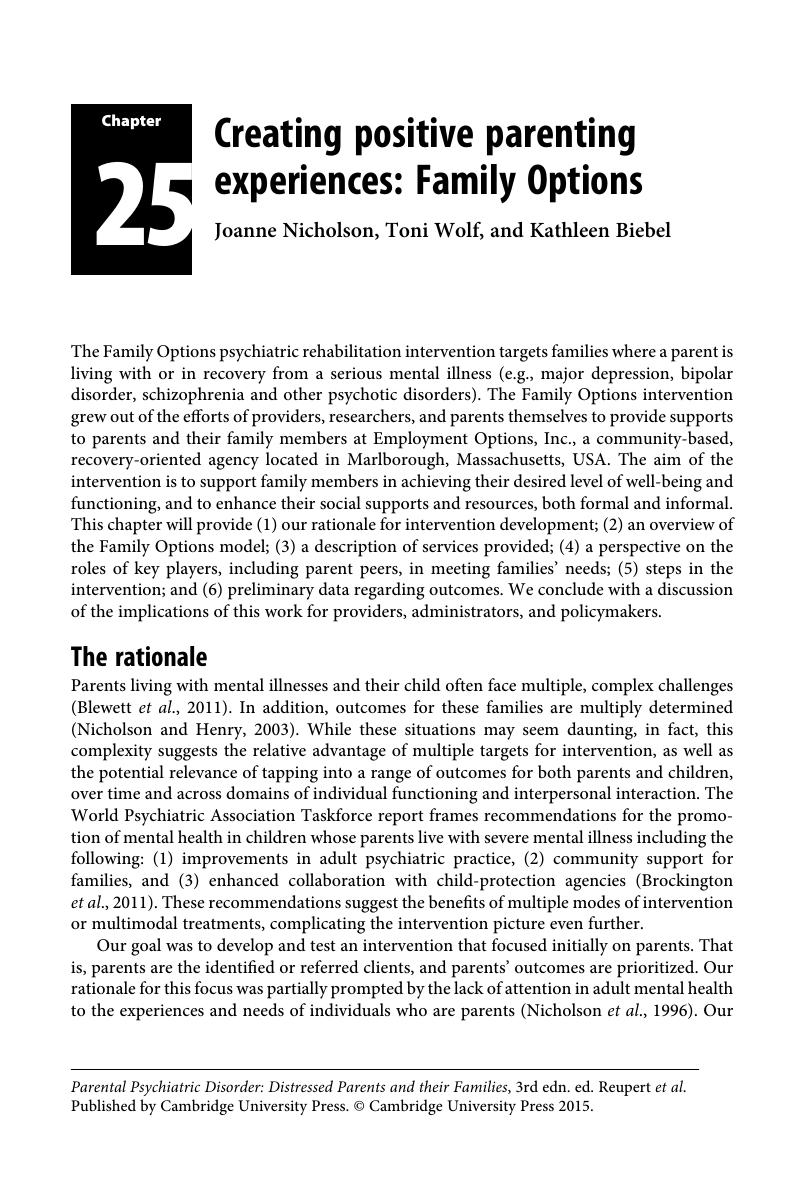Book contents
- Parental Psychiatric DisorderDistressed Parents and Their FamiliesThird edition
- Parental Psychiatric Disorder
- Copyright page
- Contents
- Contributors
- Preface
- Section 1 Fundamental issues
- Section 2 Comprehensive assessment
- Section 3 Specific disorders: the impact on children, parenting, and family relationships
- Section 4 Child, parent, and family interventions
- Chapter 19 Helping children understand their parent’s mental illness
- Chapter 20 Psychopharmacology and motherhood
- Chapter 21 Enhancing depressed mothers’ sensitivity
- Chapter 22 Working with parents who have a psychiatric disorder
- Chapter 23 Grandparents as primary caregivers
- Chapter 24 Interventions for families when a parent has depression
- Chapter 25 Creating positive parenting experiences: Family Options
- Section 5 Building workforce, organizational, and community capacity
- Index
- References
Chapter 25 - Creating positive parenting experiences: Family Options
from Section 4 - Child, parent, and family interventions
Published online by Cambridge University Press: 05 July 2015
- Parental Psychiatric DisorderDistressed Parents and Their FamiliesThird edition
- Parental Psychiatric Disorder
- Copyright page
- Contents
- Contributors
- Preface
- Section 1 Fundamental issues
- Section 2 Comprehensive assessment
- Section 3 Specific disorders: the impact on children, parenting, and family relationships
- Section 4 Child, parent, and family interventions
- Chapter 19 Helping children understand their parent’s mental illness
- Chapter 20 Psychopharmacology and motherhood
- Chapter 21 Enhancing depressed mothers’ sensitivity
- Chapter 22 Working with parents who have a psychiatric disorder
- Chapter 23 Grandparents as primary caregivers
- Chapter 24 Interventions for families when a parent has depression
- Chapter 25 Creating positive parenting experiences: Family Options
- Section 5 Building workforce, organizational, and community capacity
- Index
- References
Summary

- Type
- Chapter
- Information
- Parental Psychiatric DisorderDistressed Parents and their Families, pp. 266 - 276Publisher: Cambridge University PressPrint publication year: 2015
References
- 1
- Cited by



